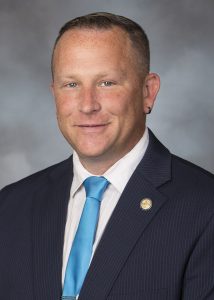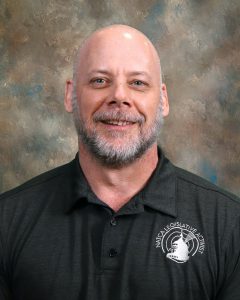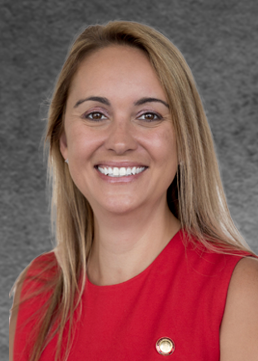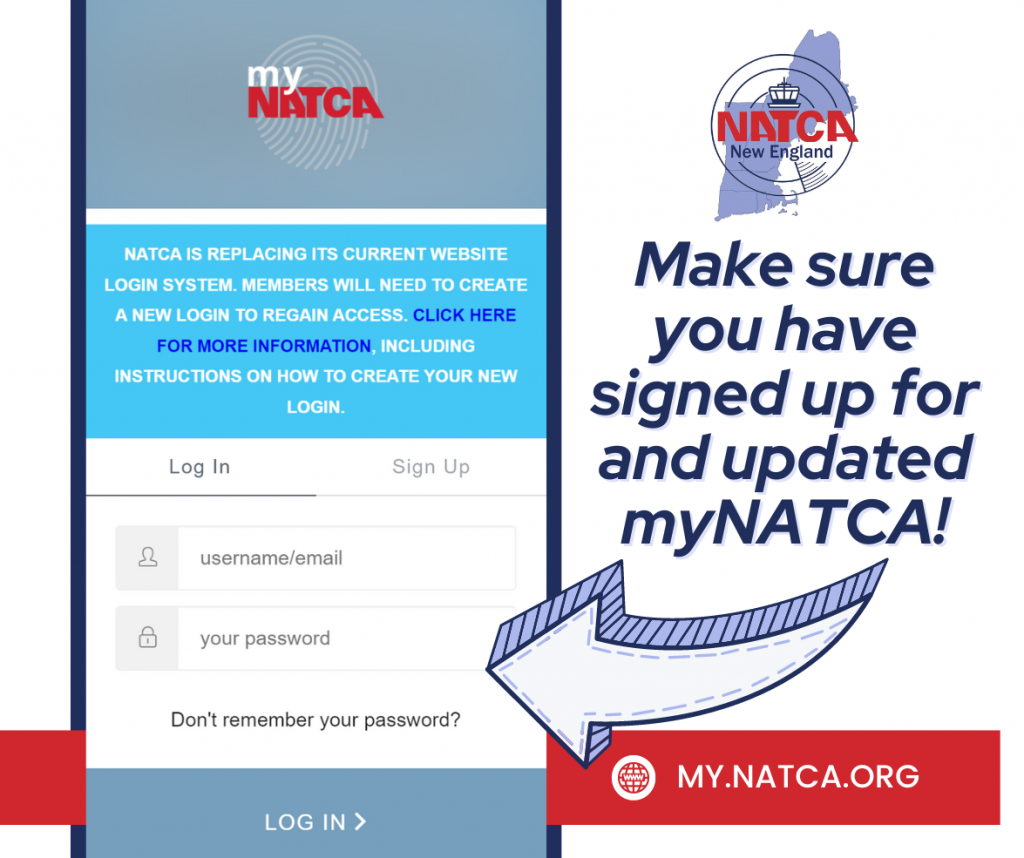
April 2023 New England Bi-Monthly Regional Update #1
From Mick Devine, NATCA New England Regional Vice President

Trust and verify is a phrase we in the air traffic industry are very familiar with. Does t”rust and verify” translate over to the union? Of course it does! One of the first lessons you learn as a Rep, usually through experience, is to do your research before moving forward. That goes for a few different types of scenarios. For instance, we oftentimes will be sitting in the union office and an angry member will walk in and give you their side of the story. In the beginning of your first term, a Rep will often just run into the manager’s office and begin to argue on behalf of the member and the union. Unfortunately, there is always a second side to the story, or at the very least, some missing information.
Leaving out information is just human nature, and oftentimes not done purposely, but it still puts the Rep in a very bad position. They have heard the member’s side of the story, created their argument, and have engaged in conversation to try to rectify the situation. However, the Rep then gets put on their heels as they learn some missing facts or the other side of the story. This creates a difficult battlefield for the Rep to navigate as they learn real-time. This is why we must trust, but we have to do our due diligence and verify. This helps by ensuring you know all the facts and both sides of the story prior to making any moves. It puts the Reps in a much more winnable position as they can be ready for all sides of the argument and can refute as necessary as they engage in dispute resolution.
It is important for you to remember to do your absolute best to give your Rep all sides of the story, and please do not leave out information on purpose because you feel it harms your case. Contractually, any dialogue with your Rep is protected from disclosure to the FAA. The Rep does not disclose your conversation to the FAA ever. They simply use all the information you give them to put themselves in the best position to be successful.
Reps don’t just use “trust and verify” with their own members; it is just as important when dealing with management. The collaborative environment NATCA and the FAA have created has offered up healthy conversations where both parties present their interests, and trust between the parties is at an all-time high. However, management will oftentimes have the same conundrum that the union has, where they have one side of the story from their side and are discussing from that position. That position is very often missing information. More often than not, your management counterpart is not withholding information on purpose, but they just didn’t follow up fully before engaging with the Rep and thus they are arguing from a position of half information. This is a big reason why most of these conversations end with one party saying, “Let me do some more digging on this and get back to you.”
In New England, we pride ourselves on doing as much research as possible before engaging with the FAA on any topic. It’s becoming evident that this fact is more right than wrong—the person who does the best research usually is the successful party in a debate. In some of our engagements with the membership, it is clear that the way we as controllers are treated compared to the way those in management are treated is far from equitable. This is contrary to a requirement that is codified in Article 102 of the CBA. You can find the following phrase on the FAA homepage under the title “Our Values”: “People are our strength. Our success depends on the respect, diversity, collaboration, and commitment of our workforce.” Do you feel respected or committed to by your management team?
From Scott Robillard, NATCA New England ARVP

Hello NATCA New England.
The Freedom of Information Act (FOIA) allows the public to request records from federal agencies.
The Freedom of Information Act (FOIA) has its origins in Administrative Procedure Act (APA) which was signed into law in 1946. The APA gave agencies broad discretion concerning the publication of governmental records. In the 10-20 years following its passage into law, Congress became concerned that it had become more of a means of withholding information than the means of disclosing information, as it was intended. In July 1967, Congress amended that law and created FOIA.
Seeing that broad disclosure by the Federal Government could have some serious impacts on private citizens, in 1974, Congress passed the Privacy Act. This was a countervailing measure to ensure that the privacy of citizens in documents kept by the Government was maintained.
Why am I talking about FOIA?
About 6 weeks ago, I submitted a FOIA that requested all bonuses paid to all levels of management and the Air Traffic and Staff Support Bargaining Units within the Boston District for the calendar years 2021 and 2022. I also requested the amount of Compensatory Time and Credit Time worked.
Regionally, we are breaking the data down and digesting it. In time, we will provide a report to the NATCA New England Membership of what we found. However, until we are sure we truly understand the data, we do not want to draw any conclusions.
For example: if an employee is above the top of the pay band, they are paid as a lump sum. Did this show as a bonus? Also, if a BUE sold back sick leave at retirement, did this show as a bonus? We do not know yet, but we will.
Some may feel this is an invasion of privacy. For those that feel that way please be aware that as a federal employee, who is paid by United States tax dollars, very little that shows in your Leave and Earning Statement is private. It is mostly public knowledge.
This specific FOIA is about accountability, honesty, and transparency. As a Union, we cannot issue monetary awards to one another. That responsibility falls on FAA Management. In New England, we deem it to be the Union’s responsibility to ensure accountability and fairness to the extent possible under the CBA and the Law. Regardless, we can ensure transparency.
We will view fairness and accountability through this lens: all the air traffic that is moved through the system is done by the Air Traffic Bargaining Unit (BU) with the help of the TMU BU. The installation of the aviation systems we work on and the buildings we work in are because of NATCA Region X, Engineering Services. The adaptation your STARS or ERAM system uses was built by the OSF and FAST BU. Last, but not least, the training offices and all procedural work come through the Staff Support BU. All NATCA.
It will be interesting to see what the data says and whom the management team rewarded. Will it say, “The Agency succeeded, and therefore the awards are shared proportionately between all entities involved?” or will it say, “The Agency succeeded despite the workforce, through the stellar actions of the management team?”
Legislative
From Jamie Green, NATCA Legislative Committee, New England Chair, PVD

On Thursday, March 23, NATCA President Rich Santa testified before the House Committee on Transportation and Infrastructure Subcommittee on Aviation’s “FAA Reauthorization: Navigating the Comprehensive Passenger Experience” He discussed FAA funding and how it relates to NATCA’s priorities of CPC staffing, controller training, and modernizing the FAA’s equipment and facilities.
President Santa then met with leaders of Senate and House aviation committees that oversee FAA reauthorization. An authorization bill is legislation used to authorize the activities of federal government agencies. For NATCA members, the FAA reauthorization bill is the authorizing measure that establishes, continues, and/or modifies FAA programs and activities. Congress passed a five-year authorization for the FAA in 2018, so the Agency’s authorization must be renewed by Oct. 2023.
NATCA’s presence on Capitol Hill is important because we are the subject matter experts when it comes to Air Traffic. We have first-hand knowledge of how inconsistent and lack of funding affects the National Airspace System and the safety of the traveling public.
NATCA in Washington is coming up in early May, and many members from New England will be in attendance. This event is crucial to help train NATCAists to give them the knowledge and tools to be able to speak with their members of Congress to encourage them to fight for and vote for stable predictable funding for the FAA along with adequate staffing levels.
Region X Member Highlights
NATCA New England is highlighting NATCA Region X members who live and work within New England. Learn more about who your local Region X brothers and sisters are and what they do.

Albert Arcese – Civil Engineer, Boston Navigation and Landing Aids
“I manage Navigation and Landing Aids projects in the New England Regions as well as other parts of the Eastern Service Area. This work involves both the establishment of new facilities as well as support for existing facilities. Some examples are; Instrument Landing Systems, various types of approach lights, vertical guidance lights, ground-based navigational aids, communication equipment, and facility controls. I also assist airports with their projects whenever they impact any Navigation and Landing Aids. I am also the NATCA National Event Review Committee representative for ATSAP-X which is the Voluntary Safety Reporting Program for Engineers.
I have been with the FAA for over 33 years and can say that I have worked at just about every FAA location in New England.
The work I do is a small but integral part of the very large and complex National Airspace System. The work that engineering services and other Region X staff performs every day ensures that the controllers, pilots, and other stakeholders have the tools they need to maintain the safety and efficiency for the flying public. Additionally, the work I do within our Voluntary Safety Reporting gives our Region X staff a voice and more importantly a seat at the safety table. I make sure that their safety concerns are heard.
Another thing I do is that I am an active pilot and flight Instructor. I have worked for airlines and charter companies. I have served as a Captain, Chief Pilot, Check Airman, and company instructor and also the Assistant Chief Instructor at the Air Force Flying Club in Bedford, MA. Most recently I have been a Captain for a Lear Jet 60 for Jet Aviation. I have also just accepted a job with JetBlue and will soon be flying for them. I will be one of the few and maybe the only person to be both a member of NATCA and ALPA at the same time.”
Information & Upcoming Events
When is the last time you updated your information in MyNATCA?
MyNATCA contains your contact information such as your mailing address, phone number, email address, and more! By ensuring you keep your MyNATCA information up to date, you will ensure receiving the most up-to-date information from NATCA. Your MyNATCA preferred email address is where you will receive updates from NATCA National and from your Local’s listserve. All Local listserves are being transferred over to this new system, so if your information is not updated in MyNATCA, you will not receive your Local’s emails.
There are two ways to access your MyNATCA profile:
1) Go to https://my.natca.org and log in.
2) Through the NATCA Website: https://www.natca.org. (Click the “Members Home” link at the upper right corner. This will take you to a login page where you can enter your username and password for your account. Hover over “My Account” in the upper right-hand corner and click “Profile” to access MyNATCA.)
Registration for NATCA’s 19th Biennial Convention is open!
This year’s Convention will be held at The Diplomat in Hollywood, FL June 19-22. We will kick off the Convention with an opening reception on the evening of June 19. Two days of Convention business , one day of Regional meetings, and other NATCA events will take place all day June 20-22.
For Convention, NATCA National does not pay for members’ hotel rooms nor make their hotel reservations. Hotel reservations are the responsibility of the individual member and are paid for by the member or their local. The cutoff date to book your room is April 26.
To register and/or obtain additional information and updates, visit www.natca.org/events/convention.




